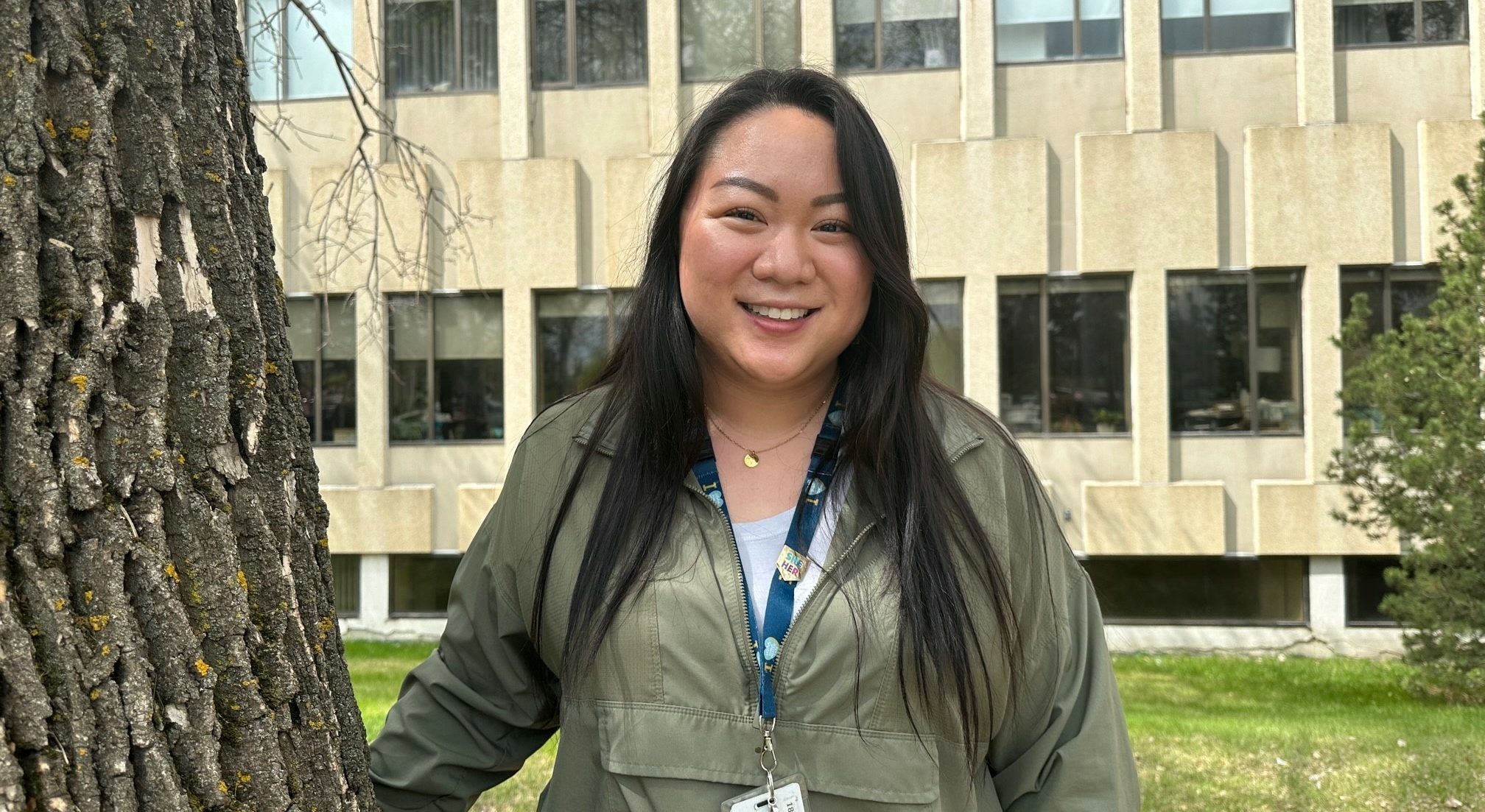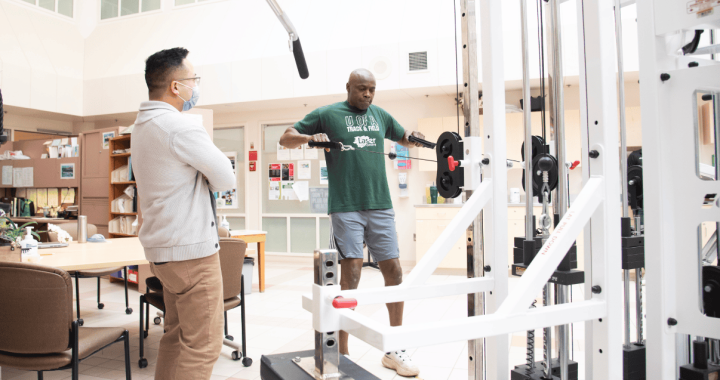May is Speech and Hearing Month in Canada. There are many professionals at the Glenrose who support patients to achieve their speech and hearing goals, including Sarah, a speech-language pathology assistant (SLPA). Sarah started working at the Glenrose in 2017, in the pediatrics department. Before becoming an SLPA, Sarah worked as a journalist. Below, she answers questions about her role, and how it integrates with the complex, comprehensive care at the Glenrose Hospital.
What an interesting career transition! How did you go from journalism to becoming an SLPA?
I loved language and writing was always my strength. As I got older, I realized that writing is great, but there’s no interaction there—there’s no human element. When I finally figured out that it was people driving me to feel motivated and feel inspired, I went back to school for this career. It was kind of a restart. I get to use my language background, and I get to continue to interact with people.
What does it take to become an SLPA?
It’s a two-year program offered at MacEwan University. Norquest also offers a therapy assistant program, but it’s a generalized program, so it offers education in all aspects of recreation, physical therapy, occupational therapy and speech. I specialized in speech at MacEwan because linguistics was a strong interest of mine. And, because it was a career switch, it was nice to have the option to get the diploma and be able to start working right away.
What does an SLPA do?
SLPAs tend to wear many hats! Speech-Language Pathologists first assess and develop goals, then we work as a team with the patient to help them achieve these goals. We provide speech and language therapy, complete hearing screens, develop therapy materials, maintain equipment, program AAC devices and organize department materials. I work with adults at both the inpatient and the outpatient level. I also directly support patients in our Videofluorographic Swallowing Study (VFSS) clinic. It’s a barium-swallow test that provides SLPs an opportunity to directly see how a person’s swallow is functioning.
What do you wish people knew about your role?
SLPAs are lucky because the majority of our caseload is typically direct patient-care, so providing therapy is our specialty. Part of being a Therapy Assistant is learning to be dynamic as we work with multiple SLPs and multiple populations, often all at the same time. It’s a role that has been evolving and changing in the last 20 years and I think even SLPs are still learning how much we can do.
What is unique about being a SLPA at the Glenrose Rehabilitation Hospital?
Because the Glenrose supports people from all ages and stages of their rehab journey, I have worked with everyone—from pediatrics to geriatrics. I began my career working with preschool children but was able to transition to working with adults and I love being able to learn new skills mid-career. I think it’s made me a very client-focused therapist, as I’ve learned that no matter the age, everyone is motivated by something.
What is the hardest part of your job?
Part of working in rehab really puts you at the forefront of some very sad and difficult traumas that patients are overcoming. It’s really easy to neglect taking care of yourself when you are supporting and observing people who have been through so much. I wouldn’t believe it if you had told me ten years ago that learning to take care of my mental health and well-being would be one of the most challenging aspects of my career, but it’s true. You can’t pour from an empty cup.
What is the best part of your job?
The everyday interactions I have with patients. Communication is connection, no matter the modality. People with aphasia or other acquired speech disorders don’t always have the same opportunities to socialize, so it’s always fun to be able to facilitate authentic interactions where someone can feel heard, make a joke or even complain. These are things that everyone has a right to do and it’s pretty rewarding to support someone in getting there.
What role do new and emerging technologies play with you and your patients?
As an assistant, we are often testing the technology first, because we’re hands on. We are often willing to try new things just out of necessity to evolve and change. Kids today come in and know how to use an iPad without knowing how to read. But even our older populations realize the Glenrose is a safe place to try new things. They come in expecting to relearn how to talk, or relearn how to walk, but it’s also about adding skills to complement the skills they already have. And the technology is a huge tool.
What does communication access mean to you?
It’s about providing opportunities for someone to communicate successfully using the skills that they have, not the skills that we want them to have.


